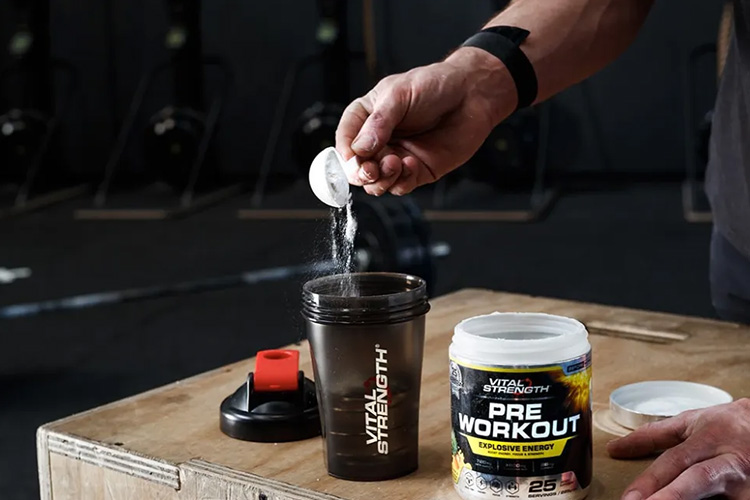
Around the world, Pre-Workout Supplement use grows quickly among generations, as its popularity on social media and presence has exponentially grown. photo courtesy of BeaconsField Fitness
Exploring the benefits and harms of Pre-Workout supplements, and the growing trend of their usage.
Since their invention in 1982, Pre-Workout supplements have become a staple of the fitness industry. Companies producing these supplements promise enhanced performance, increased energy, and improved focus during workouts. Although these benefits can initially appear abundant, Pre-Workouts, like any other supplement, provide both benefits and potential harms to those that use them. As supplements like Pre-Workouts become rapidly more prevalent in today’s society, it’s essential to understand their effects on the human body.
Pre-Workout supplements often contain ingredients like caffeine, beta alanine, and creatine, in addition to various vitamins and minerals. These ingredients are intended to increase energy levels, delay fatigue, and improve overall performance during exercise. According to Dr. Jordan Moon, a sports medicine physician from Medical News Today, “Caffeine and beta alanine, two of the primary ingredients in Pre-Workout supplements, have shown to enhance endurance strength and mental focus during workouts.” The immense mix of ingredients in Pre-Workouts can offer a plethora of great benefits during workouts, but make sure to fully optimize use and make sure to consult with a professional before you take action.
The benefits of Pre-Workout supplements must be juxtaposed with the potential harms. Excessive consumption of caffeine, for example, can lead to side effects such as increased heart rate, jitteriness, and insomnia. High amounts of caffeine are often found in Pre-Workout supplements, posing detrimental health risks to those with heart problems. Aside from high volumes of caffeine, some Pre-Workout formulas may contain ingredients that are not well regulated or reliably researched. Dr. Moon also recommends being careful, as “the lack of regulation in the supplement industry means that consumers may be unknowingly exposing themselves to harmful substances or improper dosages.” Ultimately, since the Food and Drug Administration (FDA) does not approve most of the contents in most Pre-Workouts, users must be wary of what they are consuming, and how frequently they use it.
The use of Pre-Workout supplements is not limited to professional athletes or fitness enthusiasts; it has also gained popularity within younger generations seeking to maximize their workout performance. Among younger athletes and Pre-Workout users, the main appeal of Pre-Workouts lies in the promises that the supplement will increase energy and focus, as well as allow users to push harder during workouts and therefore, achieve better results. This pull does not only affect the promises supplement companies make, but the influence of social media and fitness personalities that often promote and contribute to the widespread adoption of Pre-Workout products among younger generations.
Older generations of people are also beginning to use Pre-Workout supplements; however, they have begun using it excessively due to the supplements’ support of fitness goals and age-related decline in energy and strength. With older age, maintaining muscle mass and overall physical function becomes increasingly challenging. Pre-Workout supplements offer appealing benefits and accessible solutions for older adults looking to stay active. Dr. Sarah Lewis, a geriatrician from Everyday Health, notes that, “many older adults find that Pre-Workout supplements help them overcome fatigue and exercise more effectively leading to improved overall well being.”
Pre-workout supplements offer many impressive benefits for most all ages, but it is essential for both young and old users to approach them with caution, ensuring they are aware of their risks. People should take precautions – especially those with underlying health conditions or sensitivities to certain ingredients. Moderation is a key factor to taking regular Pre-Workout doses, and people should inform themselves about potential effects, in order to help fully optimize the benefits.